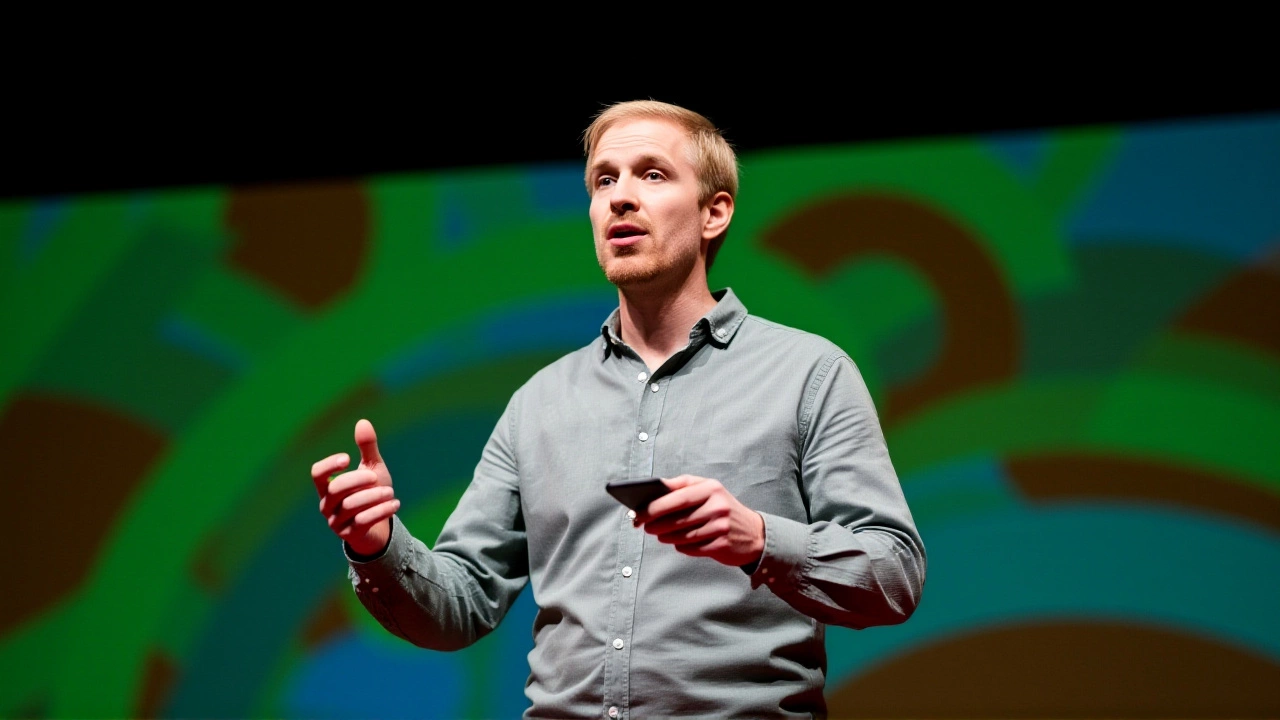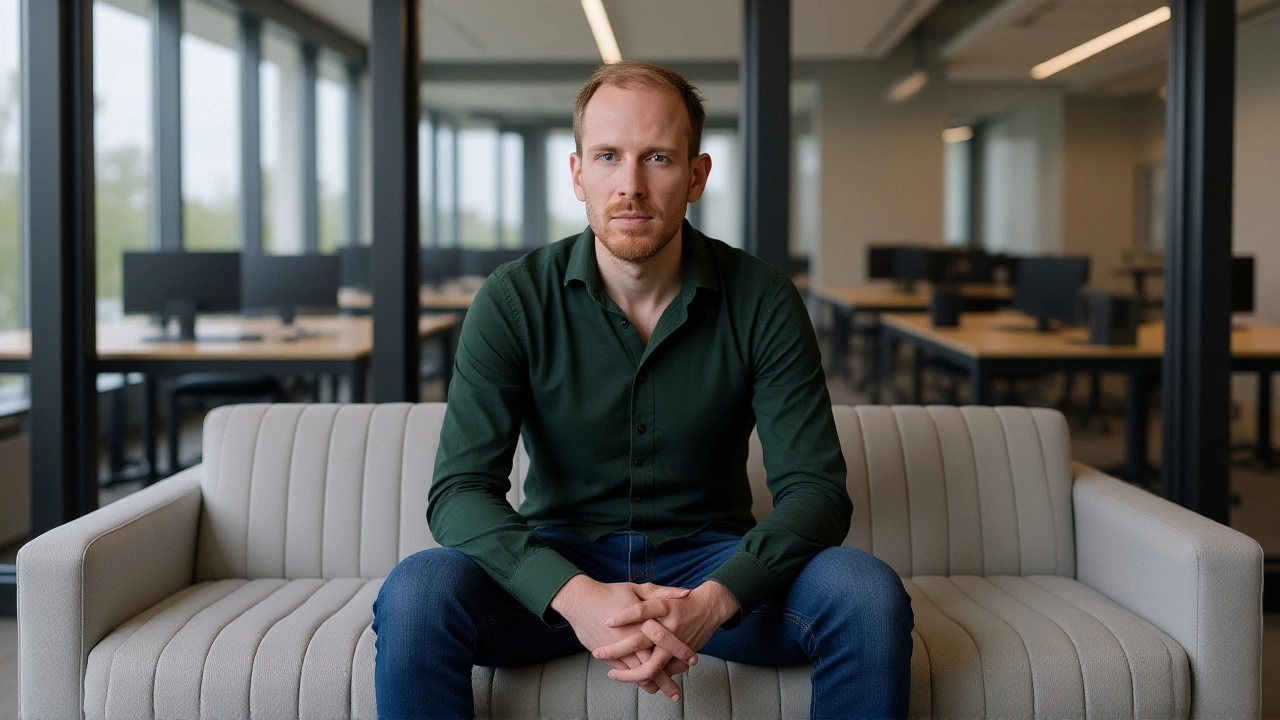What if the most radical thing you could do for the planet wasn’t to protest on a street corner—but to walk out of your office? That’s the unsettling, provocative question Dutch historian Rutger Bregman posed to listeners of the Fix The News podcast in its August 22, 2025, episode. Bregman, a repeat guest and the first in the show’s history to return, didn’t just offer a book tour pitch—he dropped a manifesto: quit your job. Not to travel, not to retire early, but to redirect your skills, your time, and your earning power toward movements that actually fix broken systems. His new book, Moral Ambition, isn’t a self-help guide. It’s a call to arms disguised as economic philosophy.
The Misallocation of Talent
Bregman’s core argument is brutally simple: the world is drowning in talent that’s being wasted. Think of the brilliant data scientists optimizing ad bids for junk food. The lawyers drafting loopholes for offshore tax havens. The consultants charging $1,000/hour to tell Fortune 500 companies how to “optimize” layoffs. He calls this the “biggest waste of time”—not unemployment, not inflation, but the misallocation of human potential. “We’ve trained generations to believe success means climbing corporate ladders,” he told hosts Angus Hervey and Amy Davoren-Rose. “But what if the real ladder leads down—into communities, into climate action, into justice work?”The numbers make his case eerie. While the U.S. unemployment rate hovers at a historic low of 4% (per October 2025 U.S. Bureau of Labor Statistics data), a New York Federal Reserve survey found worker confidence in finding new jobs has hit record lows. Nearly two million Americans have been out of the workforce for more than 27 weeks. That’s not laziness. That’s disillusionment. And Bregman says it’s the perfect opening.
The School for Moral Ambition
This isn’t just theory. Bregman has built a real-world lab for his ideas: the School for Moral Ambition. The program pays people—primarily corporate professionals—to quit their jobs and dedicate six to twelve months to working on social change projects. Think: a finance analyst leaving Goldman Sachs to design affordable housing models. A marketing director trading her agency job to run a youth literacy nonprofit. The exact stipend? Not disclosed. But the premise is clear: if society values profit above purpose, then we need to flip the script by putting money where our morals are.“Money isn’t dirty,” Bregman insists. “It’s the only tool we have to scale change.” He points to abolitionists who didn’t just write pamphlets—they funded networks, paid for legal defense, and supported escaped slaves financially. “They didn’t wait for permission. They redirected capital.”
Why Online Activism Falls Short
Bregman is scathing on performative activism. “Liking a post about climate justice doesn’t stop a pipeline,” he says. “Posting a black square for racial equity doesn’t fund a legal defense fund.” He contrasts today’s digital outrage with the quiet, persistent organizing of historical movements. The abolitionists didn’t tweet. They built churches into safe houses. They held secret meetings. They raised money. They trained people. “The mother of all movements,” he calls it—not because it was loud, but because it was strategic, patient, and funded.He admits his own turning point came during an early midlife crisis—sitting in a high-rise office in Amsterdam, staring at spreadsheets, wondering if he was contributing to the problem. “I realized I’d been trained to solve problems for shareholders, not for people,” he says. “That’s when I started asking: what if my skills could serve justice instead?”

The Tension: Quitting When Jobs Are Scarce
Critics will point out the irony: urging people to quit jobs when nearly two million are already stuck on the sidelines. But Bregman’s target isn’t the unemployed. It’s the underemployed—those with degrees, salaries, and networks who feel morally hollowed out. “I’m not telling janitors to quit,” he clarifies. “I’m telling the consultants who design the layoffs to leave.” He argues that the system rewards compliance, not conscience. And that’s why the School for Moral Ambition exists—to create a bridge between privilege and purpose.His message resonates in a world where Gen Z and millennial workers are walking away from corporate roles in droves—not because they’re lazy, but because they see the disconnect between what they’re paid to do and what the world actually needs. A 2024 Harvard Business Review survey found 68% of professionals under 35 would take a 20% pay cut to work for a mission-driven organization. Bregman is betting that number will rise.
What’s Next?
The School for Moral Ambition plans to expand to Europe in early 2026, with pilot programs in Amsterdam, Berlin, and Copenhagen. Bregman is also working with a coalition of philanthropists to create a “Moral Talent Fund,” which would offer grants to organizations that hire former corporate workers for social impact roles. The podcast’s call for listener questions—open until September 27, 2025 AEST—suggests this is just the beginning of a broader conversation.For now, the movement is small. But so was the abolitionist network in 1820. So was the civil rights organizing in 1955. Bregman doesn’t promise quick wins. He promises a long view. “We’re not trying to change policy,” he says. “We’re trying to change who gets to make policy.”
Frequently Asked Questions
Who qualifies for the School for Moral Ambition program?
The program targets corporate professionals—typically those with college degrees, stable incomes, and transferable skills—who feel ethically disconnected from their work. It does not target low-wage workers or the unemployed. Applicants must demonstrate a clear plan for how they’ll use their time and skills in social impact work, such as nonprofit management, policy advocacy, or community organizing. Selection is competitive, with priority given to those willing to relocate or work in underserved areas.
How is the School for Moral Ambition funded?
Funding comes from a coalition of private donors, impact investors, and foundations aligned with effective altruism principles. While exact figures aren’t public, Bregman has confirmed the program operates on a model similar to GiveWell’s top charities, prioritizing cost-per-impact metrics. Participants receive a living stipend, healthcare support, and mentorship—not a salary. The goal is to replicate the financial security of corporate jobs while redirecting their purpose.
What historical movements does Bregman compare to his current initiative?
Bregman draws direct parallels to the abolitionist movement of the 18th and 19th centuries, particularly how activists funded networks, paid for legal defense, and supported escaped slaves through organized fundraising. He also references the early labor movement’s use of worker cooperatives and the civil rights movement’s reliance on church-based organizing and sustained financial backing—not just marches or hashtags. These movements succeeded because they combined moral conviction with strategic resource allocation.
Why does Bregman say money isn’t a dirty word?
He argues that dismissing money as corrupt ignores its power as a tool. Social movements fail not because they’re idealistic, but because they’re underfunded. The abolitionists didn’t wait for public opinion to shift—they raised money to buy freedom. Today’s activists often rely on grants and donations, but Bregman believes the real untapped resource is the earning power of corporate professionals who choose to redirect their income. Money, he says, is the oxygen of change.
Is quitting your job realistic in today’s economy?
Bregman doesn’t claim it’s easy. He acknowledges the risks, especially with record-low worker confidence despite low unemployment. But his argument isn’t for everyone—it’s for a specific group: those with financial safety nets, marketable skills, and moral discomfort. The School for Moral Ambition provides a structured exit strategy, reducing the gamble. For many, it’s less about quitting and more about redefining success—trading prestige for purpose.
Where can people learn more or get involved?
Bregman directs listeners to three key resources: moralambition.org for program details, rutgerbregman.com for his writings, and givingwhatwecan.org for effective altruism frameworks. The Fix The News podcast also invites submissions via email ([email protected]) or voice notes for future episodes, with a deadline of September 27, 2025 AEST.

Maverick Callahan
Hi, my name is Maverick Callahan, and I'm a sports enthusiast with a particular passion for soccer. I've spent years analyzing matches, studying team dynamics, and understanding the nuances of the beautiful game. As a writer, I enjoy sharing my insights and perspectives with fellow soccer fans through engaging articles and thought-provoking discussions. My goal is to help others appreciate the sport as much as I do and to contribute to the global soccer community in a meaningful way.